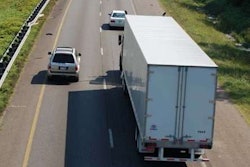Commercial and private fleets have employees that use personal, non-specialty vehicles for work to make sales calls and rush deliveries, among other activities.
Companies often use a standard IRS mileage rate, currently at 53.5 cents, to reimburse their employees, tax-free, for their business miles. Alternatively, a common practice is to pay a monthly flat allowance so as to not burden employees with keeping track of their mileage.
Both methods are a one-size-fits-all solution and that can be risky, especially in the state of California.
The state’s Labor Code Section 2802 states that employees must be reimbursed for all of their expenses to perform job duties. That may seem straightforward, but “employers have the burden to show they are accurately reimbursing employees,” says attorney Danielle Lackey, General Counsel for Motus, which offers a vehicle management and reimbursement platform.
In California, 61 active lawsuits allege Section 2802 violations against employers, she says. One recently settled case was against a marketing services firm, Harte Hanks Inc. The company was found in violation of the law for not parsing out expense reimbursements in its payroll, she says.
The company paid employees that used their personal vehicles for work higher base salaries and higher commission rates, but that was not enough. The company was ordered to pay $7 million to settle the lawsuit.
The least risky method for vehicle reimbursement is also the most accurate. Motus is one of several companies that has developed software that automates the task of using the Fixed and Variable Rate (FAVR) method for reimbursement. The FAVR method uses a calculated rate based on the lifecycle costs for a type of vehicle that is reasonable for the job, not the actual vehicle a worker uses.










